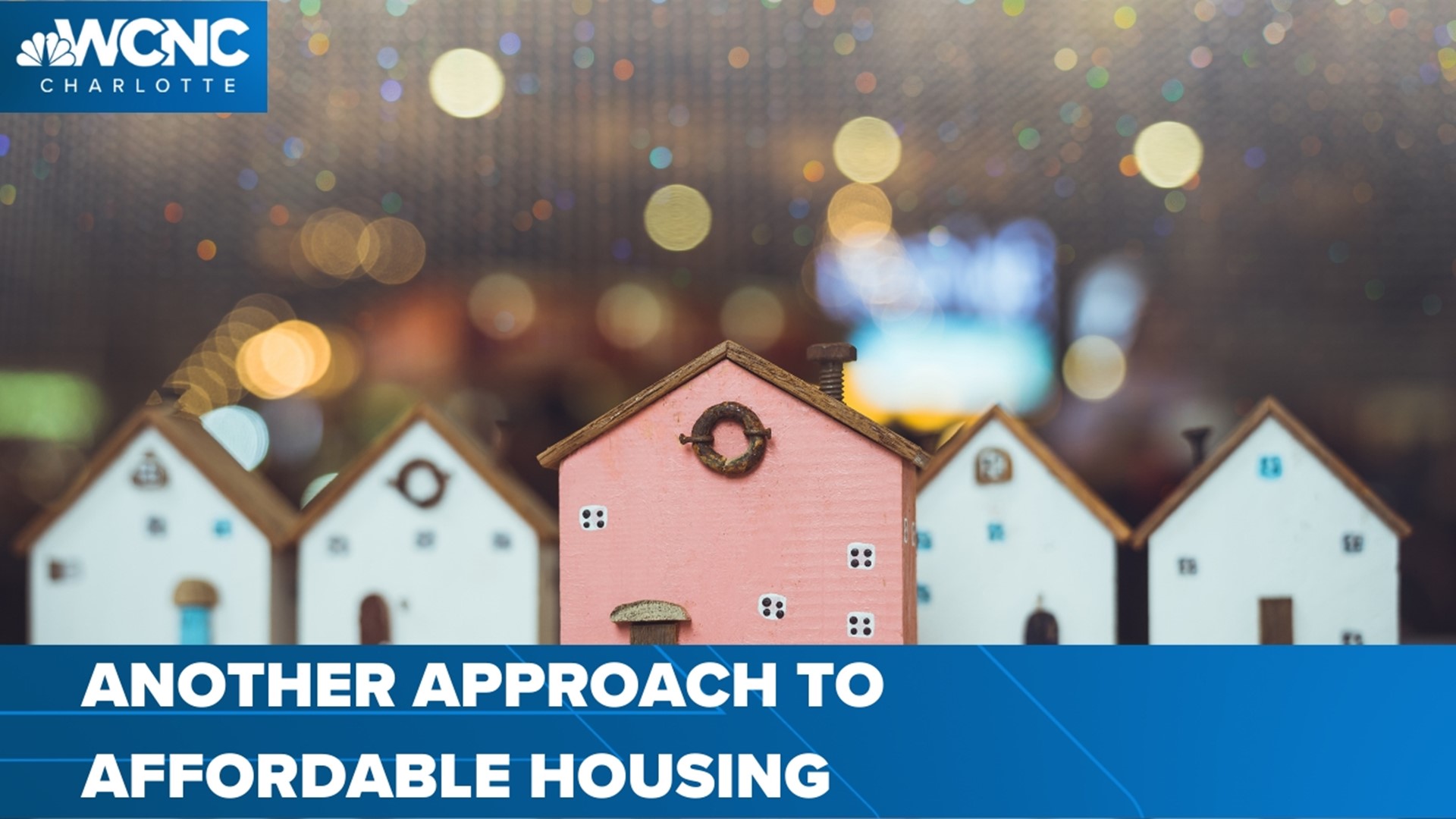CHARLOTTE, N.C. — It's a program designed to get homeless people off the street, by giving financial incentives and assistance to rental housing property owners and managers.
The North Carolina Coalition to End Homelessness (NCCEH) is looking for solutions through their Housing Connections Initiative, a program launched in 2020 with funding from Blue Cross and Blue Shield of North Carolina’s Healthy Blue Medicaid plan as part of the company’s ongoing commitment to address driving factors for health. Specifically, the funding aims to provide access to safe and affordable housing.
“It’s a very difficult market for most folks we're seeing significant price increases, 20, potentially 30% more in some areas,” said Ryan Fehrman, the executive director at NCCEH.
The program is aimed to relieve the struggles that come with North Carolina’s increasing and worsening affordable housing crisis. Advocates say it's is an example of what can be accomplished through public-private partnerships and funding. By providing financial incentives and assistance to rental housing property owners and managers, it aims to make the process of matching tenants with available units more seamless, affordable, and stable.
“For some time, I think landlords have been seen as obstacles to overcome, this approach really recognizes landlords as partners we need to engage," Fehrman said.
But by engaging landlords with incentives, he argues it helps people who are trying to start over.
“Many people who are trying to exit homelessness might have criminal backgrounds or bad credit or prior evictions, so it really provides targeted financial support to landlords who might be able to hold units," Fehrman said.
With work from mission-critical non-profit organizations and grassroots engagements throughout the state, the Housing Connections Initiative (HCI) has housed more than 2,300 individuals, including over a thousand children, and provided nearly $1 million to cover housing costs, including unit repair and move-in fees, annual renewal incentives, and other financial needs to make more units accessible to more households throughout North Carolina.
In 2021, they secured housing for 320 households experiencing homelessness through the HousingCLT program, which uses financial support from a variety of sources, including but not limited to Housing Connections.
Still, it's just one solution to the affordable housing crisis.
“Sometimes folks want a silver bullet, one solution that’s just going to work for everything and housing is too big and too expensive of an issue for there to be a silver bullet," Fehrman said.
Contact Lexi Wilson at lwilson@wcnc.com and follow her on Facebook, Twitter, and Instagram.
WCNC Charlotte is part of seven major media companies and other local institutions producing I Can’t Afford to Live Here, a collaborative reporting project focused on solutions to the affordable housing crisis in Charlotte. It is a project of the Charlotte Journalism Collaborative, which is supported by the Local Media Project, an initiative launched by the Solutions Journalism Network with support from the Knight Foundation to strengthen and reinvigorate local media ecosystems. See all of our reporting at charlottejournalism.org.
WCNC Charlotte is committed to reporting on the issues facing the communities we serve. We tell the stories of people working to solve persistent social problems. We examine how problems can be solved or addressed to improve the quality of life and make a positive difference. WCNC Charlotte is seeking solutions for you. Send your tips or questions to newstips@wcnc.com.

